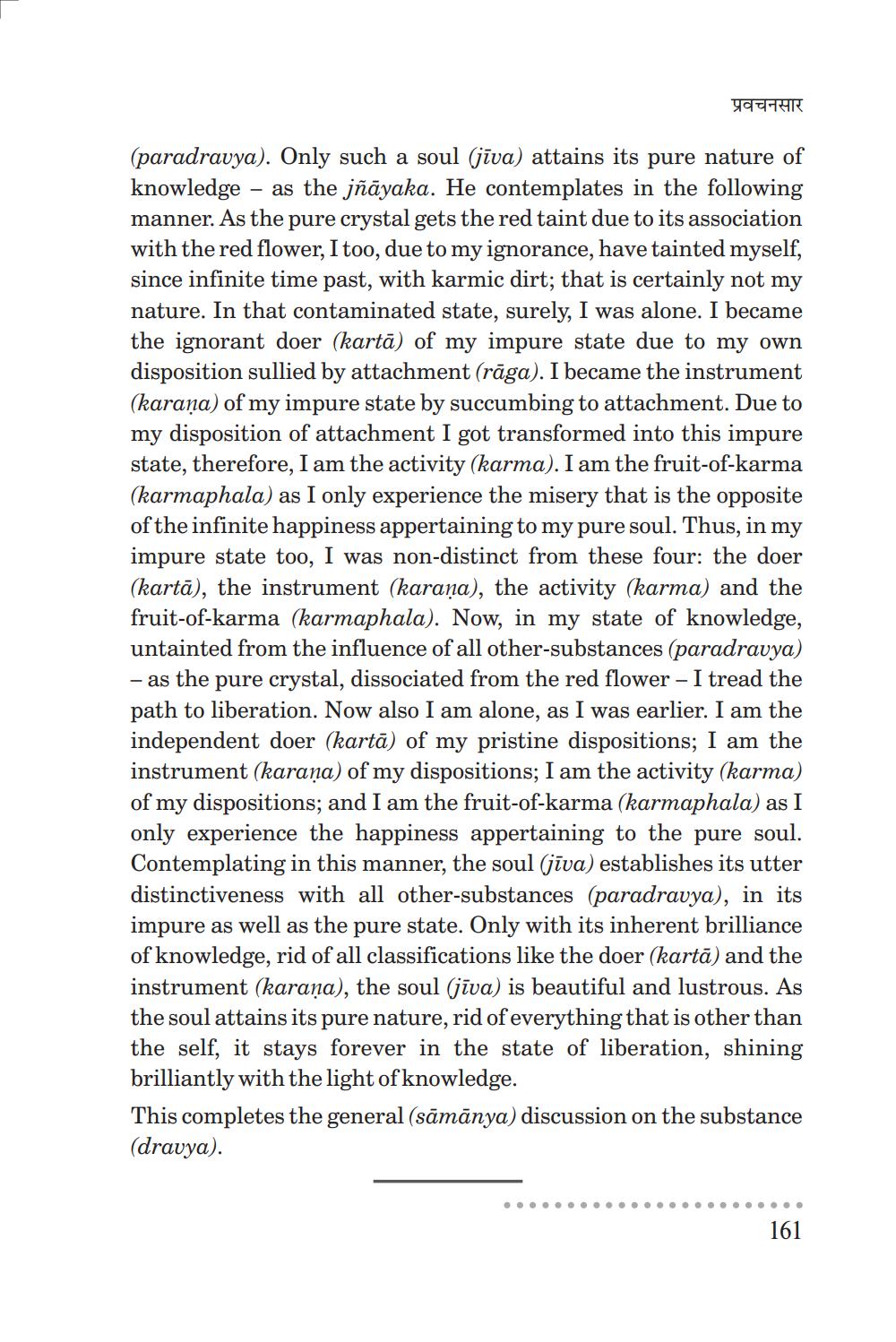________________
प्रवचनसार
(paradravya). Only such a soul (jīva) attains its pure nature of knowledge - as the jñāyaka. He contemplates in the following manner. As the pure crystal gets the red taint due to its association with the red flower, I too, due to my ignorance, have tainted myself, since infinite time past, with karmic dirt; that is certainly not my nature. In that contaminated state, surely, I was alone. I became the ignorant doer (kartā) of my impure state due to my own disposition sullied by attachment (rāga). I became the instrument (karaṇa) of my impure state by succumbing to attachment. Due to my disposition of attachment I got transformed into this impure state, therefore, I am the activity (karma). I am the fruit-of-karma (karmaphala) as I only experience the misery that is the opposite of the infinite happiness appertaining to my pure soul. Thus, in my impure state too, I was non-distinct from these four: the doer (kartā), the instrument (karaņa), the activity (karma) and the fruit-of-karma (karmaphala). Now, in my state of knowledge, untainted from the influence of all other-substances (paradravya) - as the pure crystal, dissociated from the red flower - I tread the path to liberation. Now also I am alone, as I was earlier. I am the independent doer (kartā) of my pristine dispositions; I am the instrument (karaṇa) of my dispositions; I am the activity (karma) of my dispositions; and I am the fruit-of-karma (karmaphala) as I only experience the happiness appertaining to the pure soul. Contemplating in this manner, the soul (jīva) establishes its utter distinctiveness with all other-substances (paradrauva), in its impure as well as the pure state. Only with its inherent brilliance of knowledge, rid of all classifications like the doer (kartā) and the instrument (karaņa), the soul (jīva) is beautiful and lustrous. As the soul attains its pure nature, rid of everything that is other than the self, it stays forever in the state of liberation, shining brilliantly with the light of knowledge. This completes the general (sāmānya) discussion on the substance (dravya).
........................
161




